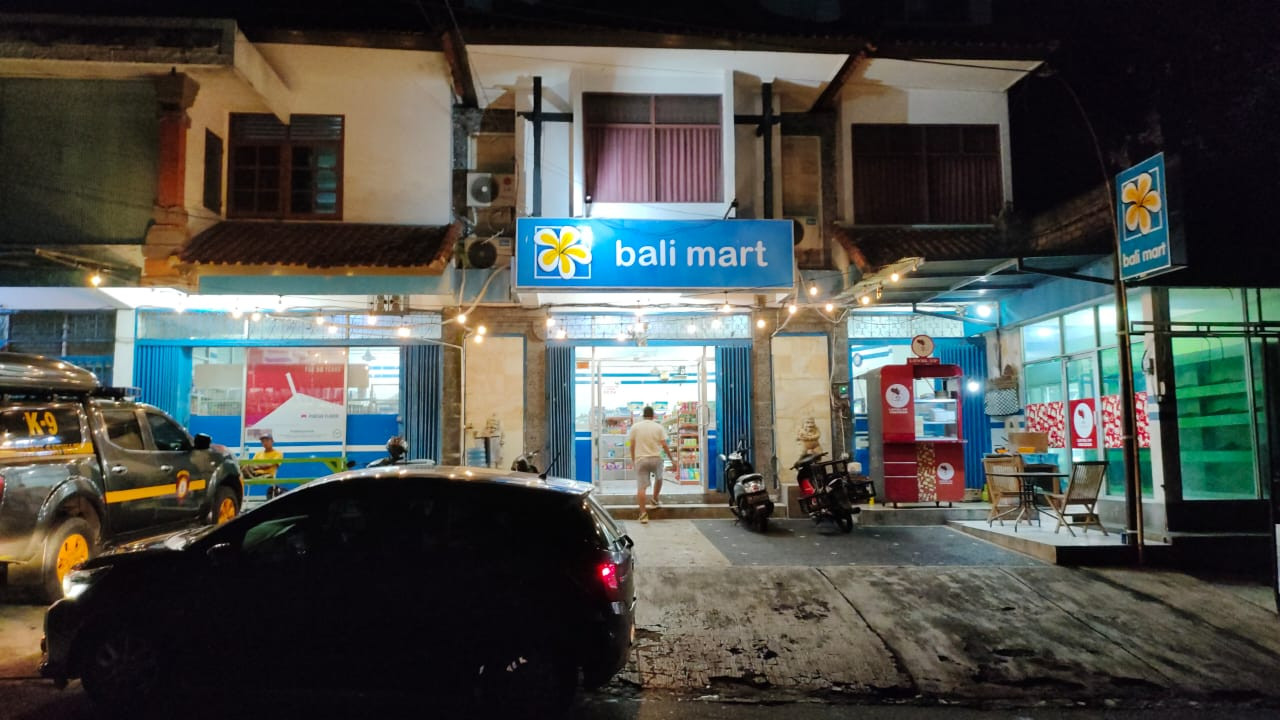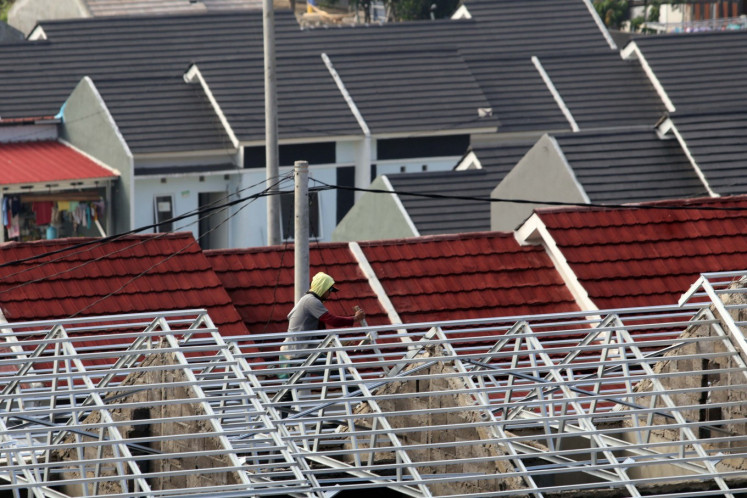Popular Reads
Top Results
Can't find what you're looking for?
View all search resultsPopular Reads
Top Results
Can't find what you're looking for?
View all search resultsRecovery? What recovery? Ask Bali tourist firms
Visitor numbers still far from 2019 fi gures, industry players say, despite yearlong G20 events.
Change text size
Gift Premium Articles
to Anyone

When Indonesia took over the mantle of the Group of 20 presidency from Italy in late 2021, hopes were high that the top-level diplomatic event would not only impact the global agenda but also benefit the local economy.
Countless events held in Indonesia throughout this year in the spheres of business, politics, culture and more promised to be a boon for big conference organizers and street side vendors alike and particularly for hotels, restaurants and other businesses in Bali, which hosted the G20 Summit last week.
However, tourist industry players on the island queried by The Jakarta Post say the much-touted recovery from the COVID-19 pandemic remains elusive.
“For now, there’s no recovery. Back then, we had a huge number of Chinese tourists,” said Yoha, who runs a convenience store in the Nusa Dua area, where the G20 Summit was held.
In 2019, Yoha explained, Chinese tourists would arrive in multiple buses to stay at nearby hotels, requiring the shop to operate on a 24-hour basis to meet the high demand.
Three years later, the G20 events had failed to draw many foreigners to the shop, even though it was located near the summit venue, she said, so the shop had yet to return to a round-the-clock service.
She noted that domestic tourists had flocked to the area in around 20 buses recently but said their spending was not comparable to that of the Chinese, who would buy coffee and imported noodles in bulk.
The shop’s revenue had increased “by a little bit” just for the summit, she said, thanks to the rotating presence of security personnel put up at nearby hotels, who would come mainly for water, coffee and snacks.
“Employment is still below the standard,” Yoha continued, “because we have not yet recovered, and wages are still cut.”
Read also: Tourism needs help, fast
Gio, the manager of a nearby four-star hotel, said that, although revenue had increased significantly since April thanks to domestic and Australian tourists, the void left by Chinese guests, who had made up around 40 percent of the property’s occupancy in 2019, was far from filled.
In other hotels, he added, the Chinese even accounted for 60 percent of the business in 2019.
“We’re hiring employees only gradually, because everything depends on revenue,” Gio said.
Australian tourists mainly chose the popular hot spots of Kuta, Seminyak and Canggu farther in the north as their “second home,” he continued, which made the Chinese all the more important for the Nusa Dua area.
Nusa Dua caters chiefly to the high-end market, where demand is largely driven by Chinese brought in by travel agencies, which makes their spending “much more organized,” according to Gio.
“Their tour guides arrange all of the spending due to them coming as a group [...], everything from shopping and water activities to meals, transportation and hotels is handled by the agencies.”
He suggested the government stage more events to “highlight the real tourism value” in each region, with Nusa Dua specialized in water recreation, such as diving and water sport.
“Hopefully, when the leaders go back to their countries, they will promote Bali,” Gio continued. “That should impact the Chinese market; Xi Jinping was here.”
Read also: Leaders arrive in Bali for G20 Summit
Businesses in the central region of Bali have also yet to regain their vigor of 2019.
Ketut, manager of a famous pork restaurant in Seminyak, admitted that the rising share of tourists from Southeast Asian countries could not compensate for the loss of the Korean and other East Asian markets since the pandemic, even as revenue was up around 50 percent from the same period last year.
Foreign delegates of G20 member countries had not yet shown up in his place. “Locals [from the G20 committee] did visit our place, but not foreigners,” Ketut said. “Hopefully the government will further ease regulations [for foreign tourists].”
Wayan, the owner of a car rental firm in Kuta, has said that, although domestic customers needing vehicles for G20 events had allowed him to “expand significantly,” tourists from China and Japan, who would use his tour services, had not yet returned.
“Our domestic market has been good [compared to 2019], but our foreign market has not yet recovered,” Wayan concluded.
Bali administration special staff member Cipto Aji Gunawan noted on Friday that the G20 was "not specifically targeted for tourism," as most of the agenda was for work purposes, not leisure activities.
"The benefits of the G20 are not instantly felt [in the economy]. Even if there are delegates that buy souvenirs, that is just a side effect," Cipto told the Post.
He said Balinese enterprises were not acting wisely by often creating the same products, such as souvenirs, which created oversupply in the market.
He noted that the government could only wait for the Chinese government to lift its pandemic-related travel restrictions and urged Bali businesses to mitigate their risks and diversify their products to cater to a wider audience.
He suggested that tourism players hone their own distinct branding instead of all aiming for the same mainstream segment.
“I have received information that China will ease its policy [on travel restrictions]. Hopefully, that will help [the businesses in Bali],” Cipto added.
Data from Statistics Indonesia (BPS) shows that Bali’s GDP rose by 8.09 percent year-on-year (yoy) in the third quarter of 2022 due to the influx of international tourists and higher household spending.
Bali's cumulative GDP from January to September amounted to Rp 111.43 trillion (US$7.10 billion), just 92 percent of what it was in the same period of 2019, at constant prices.
The number of international tourist arrivals in Bali from January to September this year was 1,185,829, which is only a quarter of what it was in 2019. Arrivals in the month of September were still less than half of September 2019.
The number of Chinese tourists to Bali from January to September was 13,833 arrivals, only 1.47 percent of the same period in 2019.
In September, the largest country arrivals were from Australia with 86,056 visitors, followed by India and the United Kingdom with 22,964 and 18,301 visitors, respectively.










